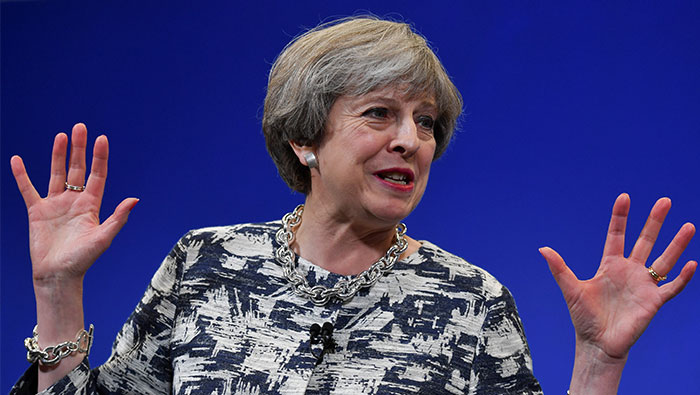
London: British shares marked time on Thursday as Britons headed to the polls after a tumultuous campaign which saw Prime Minister Theresa May's lead tighten in recent weeks.
Trading was timid on the major FTSE 100 benchmark, which was up 0.1 percent by 0900 GMT ahead of results from Britain's parliamentary elections and a rate decision by the European Central Bank.
Polls indicated Prime Minister Theresa May's gamble on securing a bigger Conservative majority would be rewarded with a win, though the surprise 2016 vote to quit the European Union meant investors were considering all scenarios.
Mid-caps have outperformed the exporter-heavy FTSE 100 so far this year but the blue-chips have gained back some ground in recent weeks as tightening polls prompted greater caution on domestic stocks.
"Some investors, possibly the market makers, have been told to get their books fairly straight rather than having long positions in stocks that could take a caning," said Paul Mumford, manager of the Cavendish opportunities fund.
"If you were to get a coalition, or Labour win, or a very small, difficult-to-work Conservative result, then the market would take it quite badly in the short term, the pound would drop and this would provide a boost to the exporters," he added.
"So the FTSE 100 has performed relatively well because people want to have an overseas hedge."
Inversely, a bigger majority for the Conservatives could prompt institutions to pick up some bargains among mid-caps, Mumford said.
U.S. bank Citi advised investors to hedge political risk through the "UK 8", a list of blue-chip stocks least exposed to domestic sales, while avoiding the "Anti UK 8" stocks with the greatest dependence on the British economy.
Traders in the City of London prepared for a long night, with banks and brokers pulling in extra staff to cover for potential volatility as results trickle in.
While macroeconomic events were front and centre of investors' minds, some company moves stood out.
Centrica and SSE were among the top blue-chip gainers. Their share prices have dipped in recent weeks as the election approached, with investors concerned about manifesto promises to cap energy prices or nationalise the companies.
"The prospect of nationalisation from a Labour government has caused investors to cool on the utilities sector," said Kathleen Brooks, market analyst at City Index, in a note.
Among mid-caps, Berendsen jumped 9 percent, the most actively traded stock as investors cheered a merger with Elis after the French laundry firm sweetened its offer for the company.
Elis' latest offer valued Berendsen at 2.2 billion pounds, or 1,250p a share, a 45 percent premium to its closing price before the initial takeover offer last month.
Petrofac shares jumped 6 percent, among top European gainers, after the oil services firm sealed a 10-year deal with Petroleum Development Oman.
Petrofac was set for its best day in just under a year, but still wallowed near the eight-year lows hit when Moody's cut the firm's debt rating to junk a week ago.